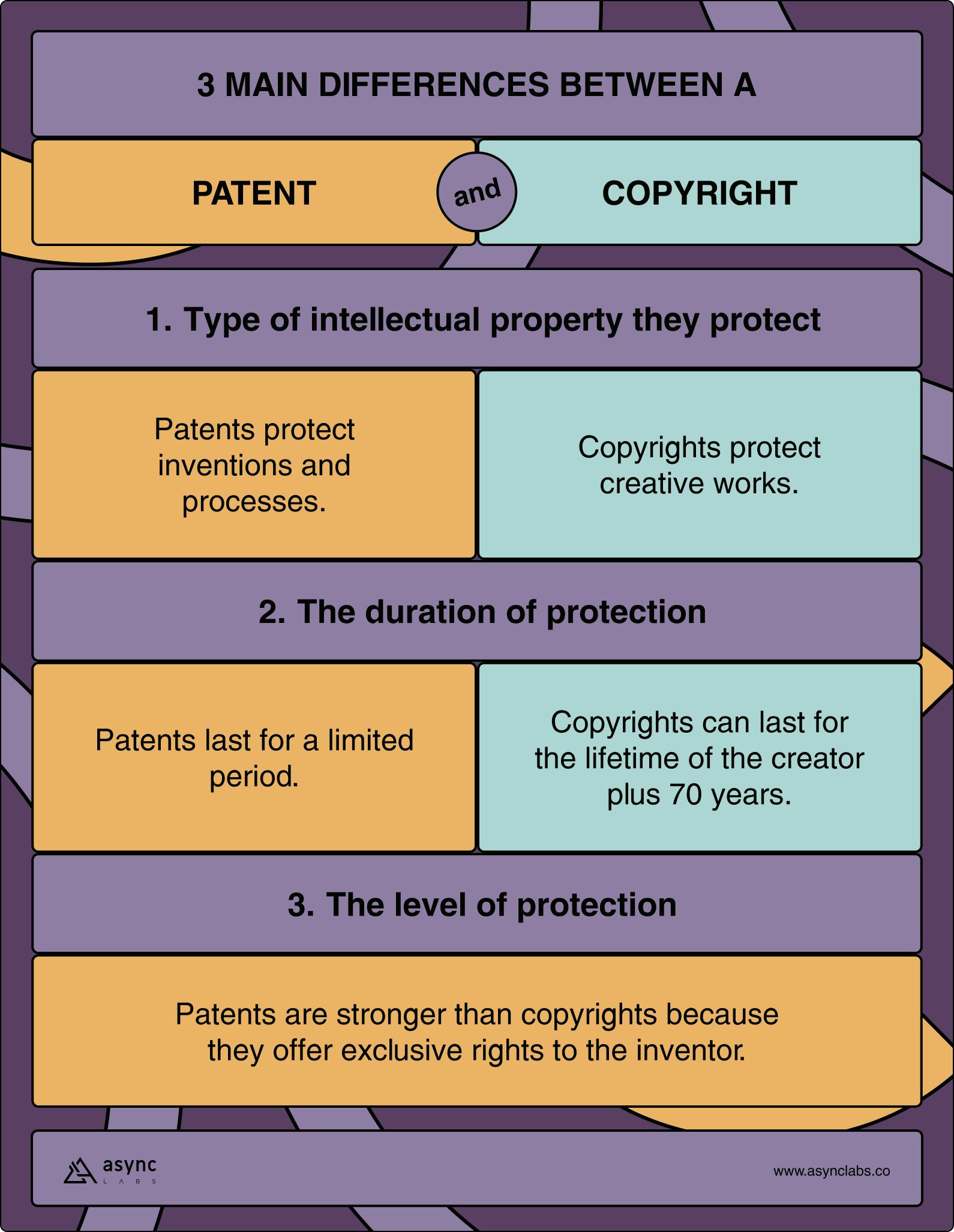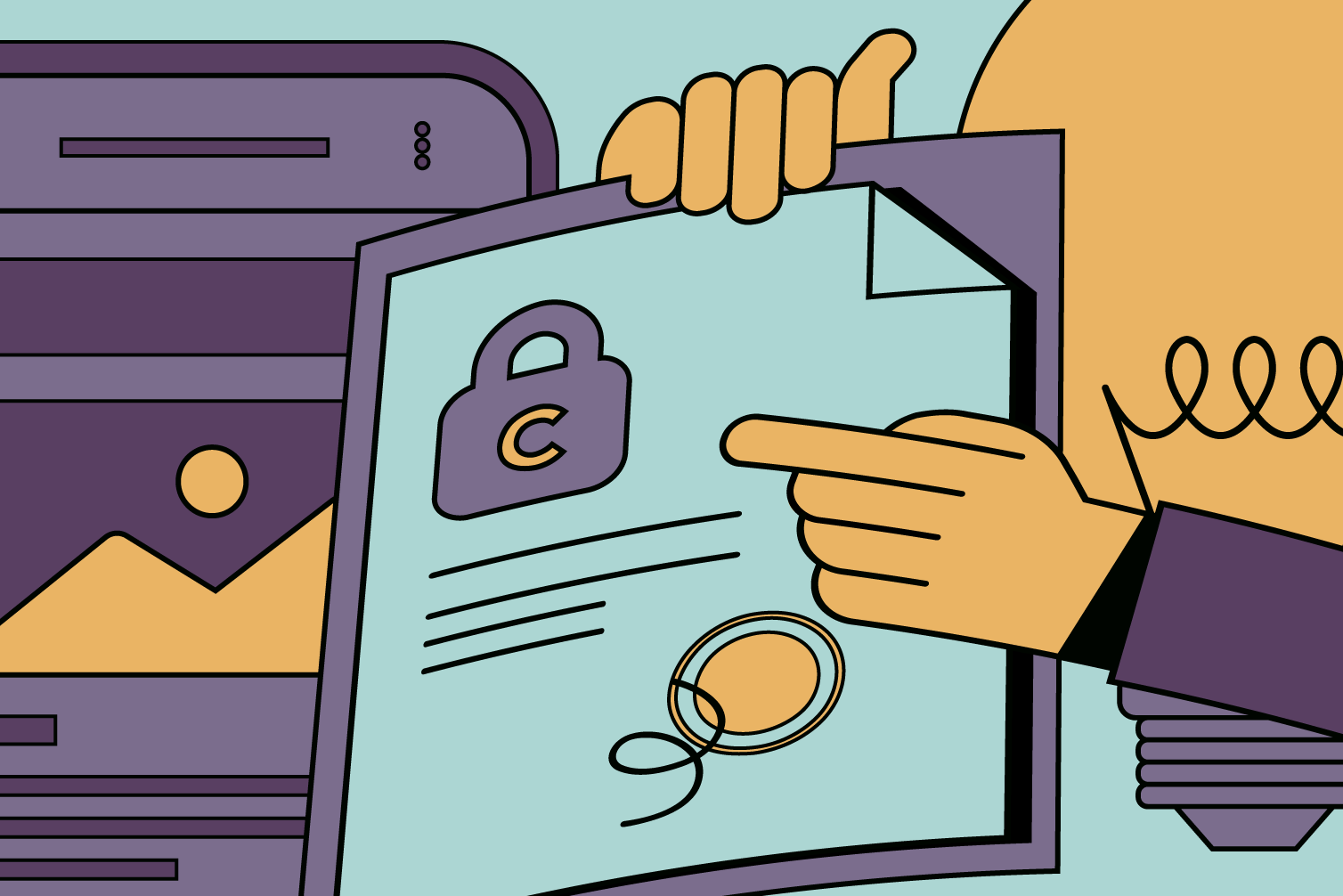You’ve just come up with a brilliant app idea, and you are ready to start building your prototype, but you are wondering how to protect app idea? You’ve come to the right place. One of the biggest concerns you may have is preventing your unique app idea from being copied by others.
The last thing you want is to spend months building your app, for someone else to steal your idea and launch a similar app. Fortunately, there are several steps you can take to protect your app’s intellectual property.
In this blog post, we will guide you on how to protect your app idea and prevent it from being copied.
How to protect app idea in 7 steps?
With the right precautions, you can confidently embark on your app development journey and turn your idea into a successful reality. Here is how to protect your idea in 7 steps:
1. Conduct a patent search
Before building your app, it’s essential to understand whether your idea already exists. Doing a patent search helps you confirm if a similar app exists and determine if you have a unique app idea.
Conduct a thorough patent search to avoid patent infringement, which can lead to legal problems. However, keep in mind that the search might yield inaccurate results due to variations in terms of classification.
Explore the patent and trademark databases to check if your idea is already protected by someone else. A comprehensive understanding of the landscape is essential to shaping your strategy to protect your app idea.
Pro tip: Consult an attorney specializing in intellectual property before pursuing a patent.
2. Document everything
Once you’re confident your idea is unique, document everything related to your app concept. This includes detailed descriptions, sketches, wireframes, and any relevant documentation. Create a paper trail that proves your ownership of the idea and the development process.
Consider using a trusted timestamp service or a notary to provide a legal record of your idea’s creation date. These records can be invaluable if you ever need to prove ownership in a legal dispute.
3. Protect your app idea with patents
After conducting a patent search and ensuring your app idea is unique, you can proceed with patent protection to prevent others from stealing your idea. By obtaining a patent, you can exclude others from producing, distributing, or selling an application.
It’s important to remember that patents can be costly, and some apps might not qualify for patent protection. In this case, consult an intellectual property attorney to determine if your app idea qualifies.
4. Sign a non-disclosure agreement (NDA)
A non-disclosure agreement protects your app idea by legally binding anyone who signs it to confidentiality. If you need to discuss your idea with someone, such as a co-founder or potential investor, sign an NDA before sharing any details.
An NDA restricts the signee from sharing any information about your app idea without your permission. It is an effective way to protect your app from being replicated. Always ensure you create a robust NDA covering all relevant legal clauses.
5. Copyright your app
A copyright protects app’s design, interface, and source code. Copyrights can safeguard against others copying your app elements and design aspects. When you copyright the app, you have the exclusive right to produce, distribute, and reproduce the app content.
Copyright registration can be done through the government intellectual property office. This process provides legal proof of ownership that can be beneficial if someone copies your app without permission.
6. Monitor app stores and infringement reports
App store platforms such as Google Play Store and Apple’s Store have policies to protect app developers’ ideas and intellectual property. These platforms have a robust system to identify and detect any infringement on your app’s intellectual property.
Additionally, some app stores have “infringement report” features that allow developers to submit reports of suspected intellectual property theft. Set alerts and regularly monitor your app in the stores to watch for unauthorized copies of your app.
7. Choose the right development team
Selecting the right development team is critical in protecting your app idea. Ensure that the team you hire is trustworthy and has a proven track record of handling sensitive information with discretion. Have them sign NDAs and create a clear contract outlining intellectual property ownership. As the idea creator, this contract should specify that you retain ownership of the app concept and all related assets.
Is a patent stronger than copyright?

Protecting your intellectual property is crucial in the modern business world, and there are different ways to achieve this. Patents and copyrights are two of the best-known ways to protect your intellectual property. However, these two forms of protection are different.
What is a patent?
A patent is a form of legal protection that gives the inventor the exclusive right to use, sell, and license their invention for a limited period. The invention can be a product or a process, and it must be new, useful, and non-obvious. A patent is a powerful tool that protects the invention from being copied or sold by someone else.
What is copyright?
A copyright is a form of legal protection that gives the creator of the original work the exclusive right to use, distribute, and display their work. Copyright protection is automatic and does not require registration.
Examples of works that can be protected by copyright law include music, movies, books, and software.
There are three main differences between a patent and a copyright:
- Type of intellectual property they protect: patents protect inventions and processes, while copyrights protect creative works.
- The duration of protection: patents last for a limited period, while copyrights can last for the lifetime of the creator plus 70 years.
- The level of protection: patents are stronger than copyrights because they offer exclusive rights to the inventor.
Which one is better?
When it comes to protecting your intellectual property, both patents and copyrights are essential. However, if you have an invention that you want to protect, a patent is the best way to go.
A patent offers exclusive rights to the inventor and can be used to prevent others from making, using, selling, or importing the invention without permission. It is an essential asset to your business, as it can be used to license or sell your invention to others.
Regardless of which form of protection you choose, it is important to protect your intellectual property from infringement and seek professional legal advice to ensure the most suitable protection for your invention or creative work.
Takeaway
Protecting your app idea is crucial to securing investment, brand, and future success. Your app’s intellectual property needs a multifaceted approach to safeguard your idea from theft.
Conduct a thorough patent search, seek legal advice, sign NDAs, and copyright protect your app to prevent legal issues.
To strengthen your app’s protection, consider registering intellectual property rights. Depending on your specific situation, you can explore the following options:
a) Copyright: If your app includes unique code, designs, or artistic elements, consider registering for copyright protection.
b) Trademark: If you’ve created a distinct brand or logo for your app, trademark registration can help protect your brand identity.
c) Patents: For truly innovative and novel ideas, you may consider applying for a patent. This can provide exclusive rights to your idea for a specific period.
Ready to turn your idea into reality? Whether it’s a mobile app, a website, or a custom software project, our experienced team will make it happen. Contact us.
